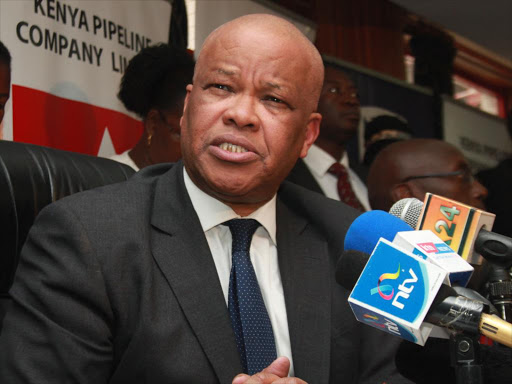
Kenya has 16 more years to attain its nuclear power dream, hence no need for an agency right now, according to a presidential task force
This is one of the recommendations in the full report by the task force appointed by President Uhuru Kenyatta to lo into the country’s power purchase agreement (PPAs).
According to the John Ngumi led team, the agency has been receiving at least Sh500 million from the Treasury since 2019 but spends most of the cash on salaries for now since Kenya’s Nuclear power generation hopes targets 2037.
”It is unlikely that the country will go into nuclear power production in the foreseeable future. It is our considered view that Nuclear Power and Energy Agency (Nupea) to be abolished,” the task force recommends.
It wants the agency’s mandate to be vested to a department within the Ministry of Energy.
”The capacity building mandate of the sector can be handled by the respective sector entities. This would require amendment of Section 56 of the Energy Act,” the Ngumi team’s report states.
The taskforce established that the scope of Nupea’s mandate involves aspects not related to nuclear energy such as research in other forms of energy and capacity building in other utilities.
The PPAs task force team said the cost implication of running Nupea as a distinct entity cannot be justified.
The agency was established under the Energy Act, 2019 to promote and implementation of Kenya’s nuclear power programme; undertake research and development for the nuclear form of energy and disseminate information on the efficient use of energy and its conservation.
It was initially referred to as Nuclear Electricity Project Committee (NEPC) prior to 2012 when it changed to the Nuclear Electricity Board through a Gazette Notice.
The recommendations if adopted by the report implementation team led by John Ngumi in the next six months will likely puncher the country’s nuclear plan ambitions which recently received a positive rating from international experts.
IAEA which in June reviewed implementation of recommendations given to the country in 2015 said Kenya was progressing well in becoming a nuclear power country in the next 15 years.
The team said that further work is needed in areas such as the development of a nuclear leadership programme and the ratification of international conventions in the area of nuclear safety.
The 2015 review had made 15 recommendations and 8 suggestions to assist Kenya in making further progress in its infrastructure development.
It reviewed the status of nuclear infrastructure development using the Phase 1 criteria from the IAEA’s Milestones Approach, which provides detailed guidance across three phases of development (consider, prepare, construct).
Kenya first announced plans to incorporate nuclear power into its great in 2008 with the then government projecting 4,000 megawatts.
A third of the almost 30 countries currently considering nuclear power are in Africa.
Egypt, Ghana, Kenya, Morocco, Niger, Nigeria and Sudan have already engaged with the IAEA to assess their readiness to embark on a nuclear programme.
Algeria, Tunisia, Uganda and Zambia are also mulling the possibility of nuclear power.
